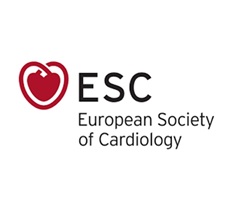 The international STEEER-AF study has shown that targeted online education on atrial fibrillation (AF) for health professionals can improve guideline-adherent care. This cluster-randomised controlled trial, now published in Nature Medicine, was designed to test if structured online AF education for health professionals could improve the care that individual patients receive.
The international STEEER-AF study has shown that targeted online education on atrial fibrillation (AF) for health professionals can improve guideline-adherent care. This cluster-randomised controlled trial, now published in Nature Medicine, was designed to test if structured online AF education for health professionals could improve the care that individual patients receive.
STEEER-AF ultimately found that the educational intervention had no significant impact on recommendations for stroke prevention, as use of blood-thinning therapy was already near-optimal. However, only one in five patients had their heart rhythm care aligned to clinical practice guidelines from the European Society of Cardiology (ESC). The education for health professionals increased patient-level adherence to optimal care recommendations for rhythm control by 51% compared to centres with no additional education.
Recently, the ESC updated its guidelines on AF for use across its 58 member countries and beyond. However, implementation of these and other ESC guidelines is described by the society as “challenging”, with education of both healthcare professionals and patients essential to ensure better uptake and adherence.
“When we designed the new ESC guidelines for AF, we were conscious to think about how these would become embedded in routine practice to help every patient with AF. This trial was run in parallel with the writing of the guidelines to help us achieve better implementation,” explained Dipak Kotecha (University of Birmingham, Birmingham, UK), chief investigator for the STEEER-AF trial and co-chair of the 2024 ESC guidelines on AF.
“The STEEER-AF trial gave some mixed results,” Kotecha added. “On the one hand, we saw that clinical staff were already providing really good care to prevent stroke and blood clots in their patients with AF. Conversely, the approach to heart rhythm control was much worse than expected. Specifically with heart rhythm control, we saw that education for staff—an average of only nine hours online—helped to improve the care that individual patients received. Put together with education for patients, the results suggest a way forward to enhance ‘AF-CARE’, an approach designed to improve patient wellbeing and reduce the burden of AF on health and social care.”
An ESC press release notes that, due to its complex association with other cardiovascular and non-cardiovascular conditions, AF requires an individualised approach, bringing together the needs and wants of each patient and their healthcare team. This integration of care was significantly improved in the centres receiving the educational intervention, as reported by the patients themselves in the STEEER-AF study.
STEEER-AF was the first clinical trial to be sponsored by the ESC. It was designed and run in collaboration with the European Heart Rhythm Association (EHRA) and the ESC Council on Stroke. The study included 70 healthcare centres from France, Germany, Italy, Poland, Spain and the UK, with a total of 1,732 patients with AF included across these centres.









